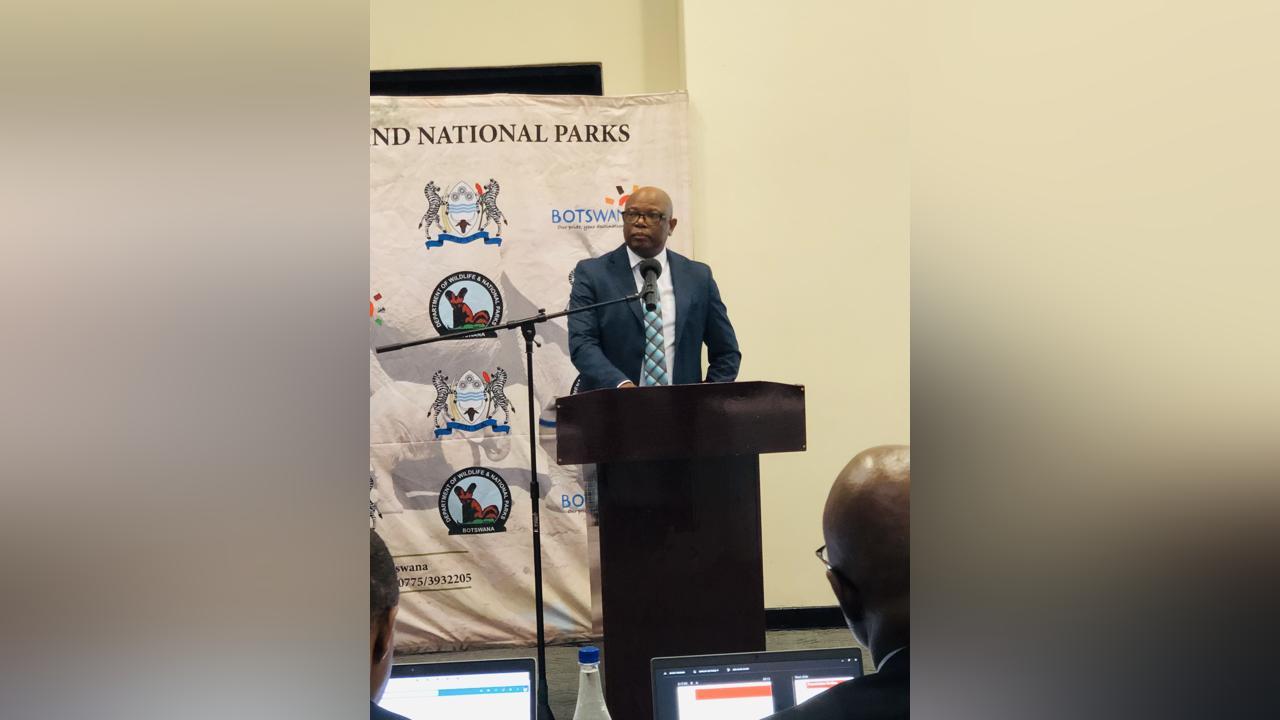Africa-Press – Botswana. The Ministry of Environment and Tourism is the process of reviewing Wildlife Conservation and National Parks Act of 1992 with a view of improving chiefly on compensation for loss caused by compensatory animals whilst also looking into including into the non-compensatory animals into the compensatory bracket, Minister Mr Wynter Mmolotsi says.
Speaking during a kgotla meeting in Bobonong recently, Mr Mmolotsi said that one of the issues in the review was to increase compensation rates which those aggrieved by wild animals deemed too meager. For example, a farmer is compensated with P3 000 for loss of cattle to a lion while another farmer gets P150 for loss of a donkey to the same predator.
A loss of life of a human being to wild animals get compensated with P70 000 of which P50 000 goes to beneficiaries while P20 000 goes to funeral arrangements. It is against this backdrop and more that minister Mmolotsi found a need to improve on compensation and inclusion of some non-compensatory animals like hyena into the category of compensatory animals.
“The ideal situation would have been to compensate for the loss without considering the animals that caused it because a loss remains that regardless of the animal causing it,” said Mr Mmolotsi.
He explained that the situation currently obtaining was that some animals were regarded manageable and could be easily driven back to the wildlife management areas if and when they had encroached into human spaces.
“But funds permitting, we should consider any loss or destruction as worthy of compensation. Compensation for loss of your livestock should not be compensated for on the basis that it was perpetrated by a hyena or lion,” said the minister.
While informing members of the community about the impending review, Mr Mmolotsi said the Department of Wildlife and National Parks was faced with shortage of resources to help them discharge their functions fully.
However, the minister said some guns which were confiscated and recalled under the previous administration would be reinstated for use by wildlife officers to control elephants amongst other problem animals. Also, the helicopters will be brought back to help drive elephants back into their areas.
Elephants are reportedly encroaching into human spaces in unprecedented numbers and into places least expected. Minister Mmolotsi said that such a scenario was caused by availability of water everywhere, as such the big animals were not forced to return to their management areas for watering and cooling.
He cited dams in Bobirwa like Thune and Dikgatlhong as beacons for elephants. Many of these elephants, he said, crossed into Botswana from Zimbabwe and it was difficult to determine the likely numbers that would find habitat in Botswana.
He however, said that the ministry had put interventions in place to combat human/wildlife conflict. He said the ministry together with private partners have erected Tuli electrified backline fence as a means to barring animals from encroaching into human spaces whilst also deterring domesticated ones from the wildlife areas.
Also, the minister said the department had offices in Mathathane and Semolale to help residents with issues of human/wildlife conflict. The minister was responding to requests from members of the communities faced with human/wildlife conflicts to help with means to curb the existing problems.
They also requested for the minister’s intervention on issues of their community trusts, which are reportedly mismanaged. Speaking at the same event, area Member of Parliament, Mr Taolo Lucas called on the ministry to resource wildlife officers to better discharge their duties.
“Over time these officers have demonstrated meticulousness in discharging their duties when called to act, but they need to be supported by the right resources,” said MP Lucas, who added that some of the challenges the officers faced were minor.
He said that officers would often fail to discharge their duties due to shortage of vehicles and if any would be lack of fuel or tyres.
“Sometimes these officers would cite shortage of fuel while members of communities are staring death before their eyes,” he said.
For More News And Analysis About Botswana Follow Africa-Press






